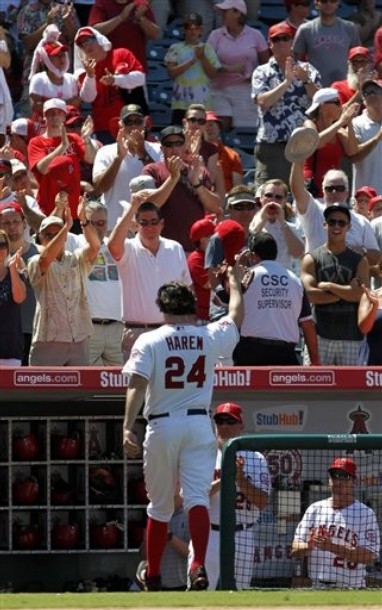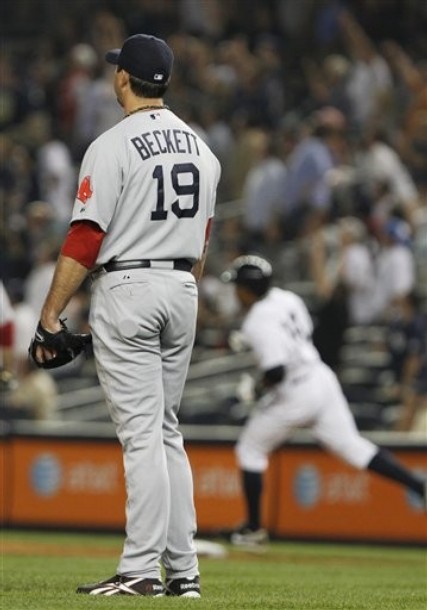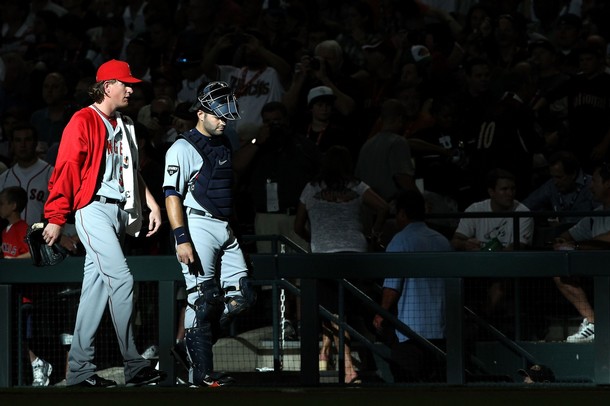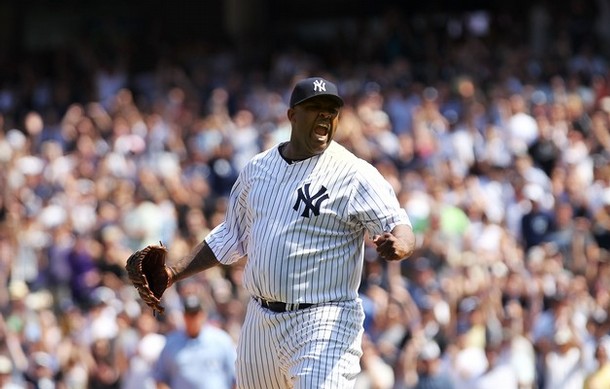As the season moves into the dog days of August, some of the discussion in baseball circles naturally turns towards end of season awards ballots. This is usually a lot of fun, particularly when the old school, traditional camp goes head to head with the sabermetric camp and acrimony and recriminations ensue. There’s nothing quite like watching a reporter argue for a pitcher based on the win-loss record against someone who hasn’t looked at a W-L record all season. In anticipation of this, I’ve set out to handicap the American League Cy Young race, and have done so by trying to consider all relevant factors. Plenty of voters really do prefer looking at win-loss record, earned run average and overall team success. Other voters are comfortable looking past that and examining stats like FIP, strikeout and walk rates, and other more advanced measures of pitcher success. I’m not arguing for a particular voter rationale as much as trying to predict which one of the American League’s best pitchers will garner enough support from voters to take home the bacon. It’s a very good crop of pitchers this year, so the debate should be lively.
Honorable Mentions: C.J. Wilson, Felix Hernandez and Justin Masterson. All three have had fantastic seasons in their own right, but it’s hard to imagine any of them cracking the top 3 of the ballot as things stand right now. Of the three, King Felix seems the strongest candidate to move up the ballot if he finishes strong and other candidates slip. He’s won before, and he’s having another superb year in Seattle.
The Fringe

Dan Haren
My preseason pick for Cy Young is having another typically superb season. Haren is a bit of a fly ball pitcher, so pitching in Angels Stadium with good outfield defenders has really helped him so far. This year, Haren’s strikeout rate has dipped into the 7.5 K/9 range, down a little from his usual ~8 K/9 mark. However, he’s been more stingy than ever with the free passes, walking only 1.36 batters per nine innings. As a result, Haren leads the American League in K/BB ratio with a 5.65 mark, ahead of Justin Verlander’s 4.97.
Haren’s win-loss record is currently a modest 10-6. With a dozen or so starts left on the season, he seems unlikely to win twenty games this year, so he’s not likely to pick up any support from the traditional crowd in that area. His ERA is 3.01, certainly a respectable mark but nothing as shiny some of the other candidates. His ERA doesn’t diverge too wildly from his FIP (2.65) or xFIP (3.12), so there’s no reason to expect him to tail off as the season moves on, except for the fact that he usually pitches better in the first half of the season than the second.
As a result, I expect Haren to wind up in the top 3 of a few ballots, but he likely won’t be a serious contender for the award. Aside from K/BB ratio, he doesn’t lead the league in any of the “important” metrics, whether they be traditional or sabermetric, and there just isn’t a whole lot of buzz about his season. It’s been an excellent year for Haren, but probably not one good enough to win him the award. This is a friendly reminder that the Angels obtained him using Joe Saunders as the primary trade chip. Moving on.
Josh Beckett

Josh Beckett would likely be a serious contender for the Cy Young if not for the fact that he’s thrown roughly 30 to 40 innings less than the some of the other heavy hitters on this list. Like other seasons, Beckett has had a few struggles with his health this year, but he’s still managed to put together a good campaign and has several factors working in his favor for his Cy Young bid. For one, he’s a very well known pitcher with a reputation as being an ace, and he pitches in Boston and gets plenty of exposure. Further, he has a very low ERA, currently at 2.17. Those two factors alone mean that he’ll show up on plenty of Cy Young ballots around the nation.
Beckett is having a good year, no way around it. Yet, interestingly, his very low ERA is slightly misleading. It’s not as if this is a breakout year for Beckett. His strikeout rate has dipped a bit from career norms, and his xFIP is right in line with his career average. In fact, he posted a lower xFIP in each one of his 2007-2009 seasons. This shouldn’t obscure the fact that Beckett has had great success in the run prevention category, and if he cracks the 200 inning mark and the Red Sox win over 100 games he might find himself creeping up the ballot for plenty of voters. It won’t be undeserved. But it will be an interesting testament to the importance that a sub-3 ERA has on the psyche of the Cy Young voting community.
The Contenders

Jered Weaver
Aside from the pitcher deemed the Favorite, Jered Weaver has perhaps the strongest case for the AL Cy Young this year. Not only is his win-loss record a solid 14-4, but he also boasts a rather anemic 1.79 ERA. Weaver has a good strikeout rate thus far, punching out around seven and a half batters per nine innings, and he walks around two batters per nine. The key to explaining his tremendous success at run prevention this year is his astronomically low home run rate, 0.34 HR per nine innings. Weaver has given up only 6 home runs the entire year, well below what one would consider normal. Only 3% of his fly balls have turned into home runs this year; league average is around 10%, and Weaver himself is a career 7.5% HR/FB pitcher. It’s really an odd situation, particularly because Weaver is such an extreme fly ball pitcher. As a result, several run estimators expect Weaver to start yielding home runs at a much higher rate. His xFIP is 3.61, nearly two runs higher than his ERA.
I’m not advocating that Weaver be penalized in any way for maintaining such a low home run to fly ball ratio. If he ends the year with a 3% HR/FB ratio and a sub-2 ERA, he’ll likely win the Cy Young and it’ll be hard to argue that he doesn’t deserve it. The historical record is what it is, even if it’s not likely sustainable or repeatable. The season isn’t over just yet though. Weaver has a decent amount of time left and it’s reasonable to expect his HR/FB ratio going forward to be somewhere around his career rate of 8%, which means more home runs and a higher ERA. Weaver may be a front-runner for the award at the moment, but it’s possible that he loses some steam as some of those fly balls turn into home runs and his ERA regresses in the last two months of the season. If not, and he finishes with 20 wins, a sub-2 ERA and a 90 win Los Angeles Angels team, he very well may take home his first ever Cy Young.
Justin Verlander

Another pitcher sure to get some love from Cy Young voters is Justin Verlander. Verlander is currently posting his third straight sub-3 FIP season, but this year he finally has the ERA to match it (2.34). Verlander currently boasts an elite strikeout rate with an 8.79 K/9, but is walking a career low 1.77 batters per nine. For a career 2.81 BB/9 guy, this is a substantial reduction, and it leaves him with the second-best K/BB ratio in the American League. Like Weaver, Verlander is also well on his way to twenty wins, currently sporting a 14-5 win-loss record.
The thing that may stand in the way the most of Verlander clinching his first ever Cy Young is the risk of batted ball regression. His BABIP is currently .239, below his career mark of .288. Yet even if that inches up a couple dozen points, Verlander is still likely to have a very compelling case for Cy Young. He’s going to have the wins, the ERA and the peripheral stats to support him. He’s also thrown a ton of innings, more than CC Sabathia, and he’s thrown a no-hitter this season. If Detroit wins the Central, he may get an even bigger boost from voters. Verlander’s 2011 is absolutely superb. Whether he’s able to beat out Weaver and others is another question.
The Favorite

CC Sabathia
All the stars are lining up for Sabathia to win the second Cy Young award of his rather illustrious career. On the traditional side, the big fellow currently leads the American League in wins with 15. It’s absolutely true that he gets loads of run support, which is why wins aren’t the best barometer of pitcher skill, but plenty of voters still consider the factor. CC has 10 or 11 starts left this season, which means he’s a really good bet to end the year with more than twenty wins, a feat he accomplished for the first time last season. Like Weaver and Verlander, Sabathia also sports a very low ERA, currently 2.56. If Weaver’s ERA ticks up north of 2, it’s likely to make CC’s case look stronger.
Sabathia also has the benefit of pitching for a team contending for a playoff spot, perhaps directly against his competitors. Personally, I don’t think a better pitcher should be penalized for pitching on a worse team, but it seems clear that plenty of voters put a sort of premium on whether the Cy Young contender’s team makes the playoffs. If Sabathia’s Yankees win the Wild Card and Jered Weaver’s Angels or Justin Verlander’s Tigers do not, it can only help Sabathia’s case.
Sabathia should receive a good amount of support from the stat community. His case rests on more than just win totals, ERA and the Yankees making the playoffs. He currently sports the lowest FIP in the American League (2.49) and the highest fWAR total (5.6). He has an elite strikeout rate, a good walk rate and he’s getting loads of groundballs. His BABIP is fairly normal, and the only thing that could hurt him going forward is his relatively low HR/FB ratio, currently about half of his career rate. As a result his xFIP is 3.03, a touch higher than Verlander but still lower than Jered Weaver’s 3.61 mark. In other words, there’s nothing too fluky about Sabathia’s performance. Anyone who has watched him lately knows that already. He’s been virtually untouchable lately, in a stream reminiscent of his now-famous performance with Milwaukee in 2008. Sabathia is an ace in his prime, pitching in a tough division and racking up all sorts of indicators of dominance. In the midst of a very good year of pitching in the American League, Sabathia may end of with the best case for American League Cy Young. If the big fella wants a new contract, he’s doing a really good job of showing the world just how good he can be.
Leave a Reply
You must be logged in to post a comment.